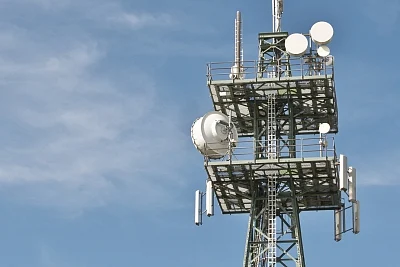By Anjana Das
New Delhi, June 16 (IANS) The telecom tower industry has urged the Finance Ministry to allow accelerated depreciation rate of 65 per cent on batteries, 20 per cent funding through External Commercial Borrowings (ECB) for the working capital and inclusion of telecom towers in the priority sector for lending by banks.
The industry uses lithium ion batteries, which have an average life of 3-5 years. A higher depreciation rate for these batteries can help higher adoption of these batteries, which can decrease dependence on diesel for power back-up. Diesel adds to the higher cost of production for the tower companies.
Accelerated depreciation is a method whereby an asset loses book value at a faster rate than the traditional straight-line method. Generally, this method allows greater deductions in the earlier years of an asset and is used to minimise taxable income.
Apart from these key demands, the Tower and Infrastructure Providers Association (TAIPA) in its submission to the Finance Ministry, said it wants inclusion of the telecom infrastructure service providers in Section 72A in the cases of mergers and amalgamations.
As tower industry is an inseparable part of telecom services, the specific inclusion will bring parity for the tower companies with telecom operators and other key industrial sectors. The benefit of Sec 72A was introduced to telecom operators in FY 2002-03 with a view to encouraging rapid consolidation and growth in the sector.
Before that, each telecom operator used to set up its own towers to cater to its own need for passive infrastructure (telecom towers, shelters, power back up) services. Accordingly, the concept of TISPs was not envisaged in FY 2002-03, when the benefit of Section 72A was extended to the telecom sector.
Section 72A of the Act allows accumulated losses of amalgamating company to be carried forward and set off in the hands of the amalgamated company.
Currently, the carry-forward of losses is limited to industrial undertakings or ships, hotels, aircraft or banks. The term "industrial undertaking" has been defined to include the companies which are engaged in the business of providing telecommunication services, whether basic or cellular, including radio paging, domestic satellite service, broadband network and internet services, said T.R. Dua, Director General, TAIPA.
There have been consolidations in the tower industry in recent times. India's telecom tower industry is expected to see further consolidation after the Bharti Infratel-Indus Towers merger.
The combined entity of Bharti Infratel Ltd -- the tower arm of Bharti Airtel, and Indus Towers, post their merger, will own more than 1,63,000 towers and will create the world's largest tower company outside China.
In the tower industry, if ATC seals the deal with Idea, then the former would operate over 78,000 tower sites in India. State-run telecom operator Bharat Sanchar Nigam Ltd (BSNL) owns 66,000 towers.
TAIPA also seeks to amend the definition of "plant and machinery". "Plant and machinery means apparatus, equipment, machinery fixed to earth by foundation including telecommunication tower and shelters, that are used for making outward supply and include the term 'telecommunication tower' for the purpose of Input Tax Credit," it said.
According to TAIPA, the tower industry is expecting to install around 25,000 towers in the coming FY with around Rs 1.25 lakh taxes paid on each. The current situation could result in increase in cost of providing the telecom service.
The Association rues that under the Central Goods and Services Act, 2017 (CGST Act), telecommunication towers have been specifically excluded from the definition of "plant and machinery" provided in the explanation to Section 17.
"Digital India, smart cities, providing e-governance services to the common man and other flagship programmes of the government depend entirely on the availability of critical telecom infrastructure and any tax/ levy on such nation building installations will ultimately increase the cost of the services to the end-consumer.
"Towers are the backbone of the telecommunication industry and any denial of this credit would substantially increase the cost of services to the common man," said TAIPA.
(Anjana Das can be contacted at anjana.d@ians.in)
--IANS
ana/sn/prs/rtp
(This story was auto-published from a syndicated feed. No part of the story has been edited by The Quint.)
(At The Quint, we question everything. Play an active role in shaping our journalism by becoming a member today.)
